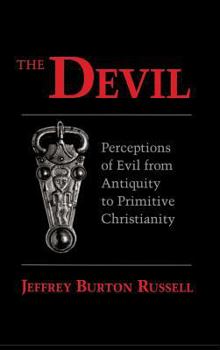The Devil
(Book #1 in the Jeffrey Burton Russell's History of the Devil Series)
Select Format
Select Condition 
Book Overview
"Evil--the infliction of pain upon sentient beings--is one of the most long-standing and serious problems of human existence. Frequently and in many cultures evil has been personified. This book is a history of the personification of evil, which for the sake of clarity I have called 'the Devil.' I am a medievalist, but when I began some years ago to work with the concept of the Devil in the eleventh and twelfth centuries, I came to see that I could not understand the medieval Devil except in terms of its historical antecedents. More important, I realized that I could not understand the Devil at all except in the context of the problem of evil. I needed to face the issue of evil squarely, both as a historian and as a human being."--from the Preface
This lively and learned book traces the history of the concept of evil from its beginnings in ancient times to the period of the New Testament. A remarkable work of synthesis, it draws upon a vast number of sources in addressing a major historical and philosophical problem over a broad span of time and in a number of diverse cultures, East and West. Jeffrey Burton Russell probes the roots of the idea of evil, treats the development of the idea in the Ancient Near East, and then examines the concept of the Devil as it was formed in late Judaism and early Christianity.
Generously illustrated with fifty black-and-white photographs, this book will appeal to a wide range of readers, from specialists in religion, theology, sociology, history, psychology, anthropology, and philosophy to anyone with an interest in the demonic, the supernatural, and the question of good and evil.






